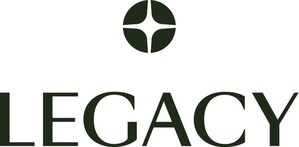WASHINGTON, June 12, 2014 /PRNewswire-USNewswire/ -- The Centers for Disease Control and Prevention (CDC) today released the results of its 2013 Youth Risk Behavior Survey (YRBS) showing cigar usage rates among high school boys now match those of cigarette smoking (both 16 percent), and alarmingly, among 12th grade boys, cigar rates (23 percent) were higher than cigarette rates (20 percent). While the research shows significant progress in reduced rates of cigarette smoking, with 15.7 percent of high school students having smoked cigarettes in 2013 – the lowest rates ever -- the data illustrates stagnant rates for cigars and smokeless tobacco, which is an area of much concern.
"This is a good news, bad news story," said Robin Koval, CEO and president of Legacy. "While there is continued, strong progress toward our mission of a generation of youth that rejects tobacco, the bad news is that it needs to be all tobacco and the lack of progress on cigars is especially troubling."
The YRBS research builds on that of the November 15, 2013, CDC Morbidity and Mortality Weekly Report (MMWR), which discussed the growth of emerging tobacco product usage among youth. Today's cigars are not like those of yore – they now come in eye-catching packaging, are sold in singles and also in candy-like flavors clearly designed to appeal to youth. Federal oversight of these alternative products still remains in limbo and these numbers are yet another call to the U.S. Food and Drug Administration (FDA) to expand its jurisdiction to products such as cigars and cigarillos.
Cigars are currently unregulated by the FDA, and are available in flavors such as strawberry, grape and menthol. Just like cigarettes, cigars can cause lung, oral, and esophageal cancer, and increase the risk for developing chronic obstructive pulmonary disease (COPD) in the long-run. Secondhand smoke from cigars also exposes nonsmokers to heavier loads of carcinogens compared to secondhand smoke from cigarettes. Despite these facts, the FDA's long-awaited proposal to deem jurisdiction over additional tobacco products, finally released in April 2014, leaves open the question of whether premium cigars would be regulated. Legacy will formally urge the FDA to assert jurisdiction over all cigars and take the necessary steps to assure that they are not marketed to or designed to appeal to youth. Legacy will also urge the FDA to ban flavorings from all tobacco products, including cigars.
"One-third of all youth smokers will eventually die from a disease caused by tobacco and despite restrictions on tobacco advertising to youth, young people are still being exposed to pro-tobacco messaging on a daily basis," said Koval. "Cigars and smokeless tobacco are every bit as addictive as cigarettes and this new data from the CDC should serve as an alert to the FDA that its jurisdiction is required to protect our youth from long-term nicotine addiction."
Measures such as increased taxes on tobacco products, clean indoor air ordinances and powerful youth counter-marketing campaigns such as truth® have worked to reduce youth smoking rates in the past and continue to be a key component in the fight to reduce youth and young adult tobacco use. Additionally, similar measures, such as Other Tobacco Products (OTP) tax increases could work to reduce usage rates for cigars and smokeless tobacco, the rates of which have remained virtually unchanged since 1999. To protect the health of all our youth, both smokers and nonsmokers, it is crucial that the FDA exert its jurisdiction on cigars and other emerging products. Ending the use of combusted tobacco products, flavors, and exposing youth to tobacco messages are necessary steps to achieving the goal of creating a Smoke-Free Generation.
Legacy envisions an America where tobacco is a thing of the past, where all youth and young adults reject tobacco use. Legacy's proven-effective and nationally recognized public education programs include truth®, the national youth smoking prevention campaign that has been cited as contributing to significant declines in youth smoking; EX®, an innovative public health program designed to speak to smokers in their own language and change the way they approach quitting; and research initiatives exploring the causes, consequences and approaches to reducing tobacco use. Located in Washington, D.C., the foundation was created as a result of the November 1998 Master Settlement Agreement (MSA) reached between attorneys general from 46 states, five U.S. territories and the tobacco industry. To learn more about Legacy's life-saving programs, visit www.LegacyForHealth.org.
Follow us on Twitter at @legacyforhealth and on Facebook at www.Facebook.com/Legacy.
Logo - http://photos.prnewswire.com/prnh/20101101/DC86294LOGO
SOURCE Legacy
WANT YOUR COMPANY'S NEWS FEATURED ON PRNEWSWIRE.COM?
Newsrooms &
Influencers
Digital Media
Outlets
Journalists
Opted In





Share this article